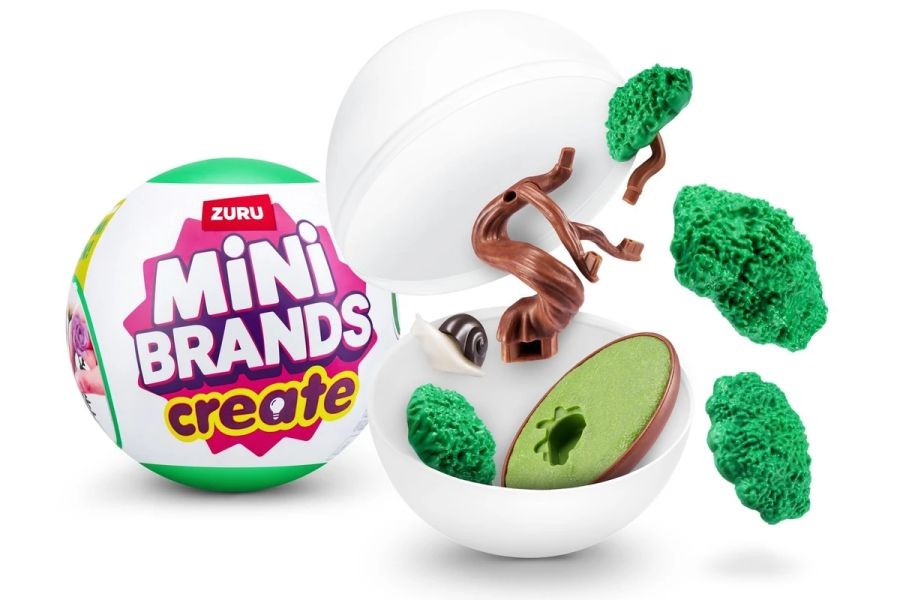In the current Australian marketplace, a unique trend has emerged where consumers are gravitating towards small brands over large corporations. This preference shift is driven by a blend of trust, perceived authenticity, and community connection that smaller brands often embody. As Australia's economy continues to evolve, understanding this dynamic becomes crucial for property development specialists and other business stakeholders. This article delves into the reasons behind this trend and its implications for businesses operating in Australia.
Why Small Brands Resonate with Australian Consumers
Australian consumers are increasingly valuing authenticity and transparency, traits that small brands are better positioned to deliver compared to their larger counterparts. According to a 2023 report by the Australian Competition & Consumer Commission (ACCC), consumers perceive small brands as more transparent in their operations and more attuned to customer needs. This perception is further supported by the fact that smaller businesses often have closer ties to their local communities, fostering a sense of trust and loyalty among customers.
Moreover, small brands are often seen as more agile and responsive to consumer feedback, enabling them to innovate and adapt quickly. This adaptability is crucial in a market where consumer preferences are rapidly changing. The Reserve Bank of Australia (RBA) notes that small businesses contribute significantly to employment and innovation, making them vital players in the economy.
Case Study: Koala – Building Trust with Sustainability
Koala, an Australian furniture company, showcases how small brands can leverage sustainability to build trust. Faced with the challenge of standing out in a competitive market, Koala adopted an environmentally friendly approach to their product design and supply chain. This strategy not only differentiated them from larger corporations but also resonated with environmentally conscious consumers.
By sourcing sustainable materials and ensuring ethical manufacturing processes, Koala reported a 30% increase in customer loyalty in 2022. This commitment to sustainability has not only boosted their brand image but also their bottom line, demonstrating the potential benefits of aligning business practices with consumer values.
Pros and Cons of Trusting Small Brands
While small brands have gained consumer trust, it's essential to weigh the pros and cons of this trend.
Pros:
- Authenticity and Transparency: Small brands are often perceived as more genuine and open, fostering consumer trust.
- Community Connection: Their local presence strengthens ties with the community, enhancing brand loyalty.
- Agility and Innovation: Smaller brands can quickly adapt to market changes and consumer preferences.
Cons:
- Limited Resources: Small brands may struggle with scalability and resource limitations compared to larger corporations.
- Market Reach: Their reach is often restricted, limiting growth opportunities.
- Brand Recognition: Competing against established brands can be challenging due to lower brand recognition.
Future Trends and Predictions
As small brands continue to gain traction, several trends are likely to shape their future in the Australian market. According to a 2024 Deloitte report, the emphasis on sustainability and ethical business practices will continue to grow, with consumers demanding more transparency from brands of all sizes. Additionally, digital transformation will play a crucial role in leveling the playing field, allowing small brands to expand their reach and enhance customer engagement through online platforms.
Another significant trend is the expected increase in government support for small businesses. The Australian Treasury has announced plans to introduce policies that provide financial incentives and reduce regulatory burdens for small enterprises, further enhancing their competitive advantage.
Common Myths and Mistakes
Despite the growing trust in small brands, several myths persist.
Myth: "Small brands can't compete with big corporations."
Reality: With the rise of digital marketing and e-commerce, small brands can effectively compete by leveraging unique value propositions and personalized customer experiences.
Myth: "Small brands lack innovation."
Reality: Many small brands excel in innovation due to their agility and ability to quickly implement consumer feedback.
Conclusion
In a rapidly evolving market, the preference for small brands among Australian consumers is a trend that property development specialists and other business stakeholders cannot ignore. By understanding the reasons behind this shift and capitalizing on the strengths of small brands, businesses can effectively position themselves for success. As the market dynamics continue to change, staying informed and adaptable will be key to thriving in Australia's competitive landscape. What strategies do you believe small brands should adopt to further enhance consumer trust? Share your thoughts in the comments below!
People Also Ask (FAQ)
Why do Australian consumers prefer small brands?
Australian consumers value the authenticity, transparency, and community connection that small brands offer, fostering greater trust compared to larger corporations.
How can small brands compete with large corporations in Australia?
Small brands can compete by leveraging digital marketing, focusing on sustainability, and offering personalized customer experiences to differentiate themselves in the market.
Related Search Queries
- Why do consumers trust small businesses?
- Small brands vs. big corporations Australia
- Consumer trust in small businesses
- How small brands build customer loyalty
- Impact of small businesses on the Australian economy

































christelbalke9
10 months ago